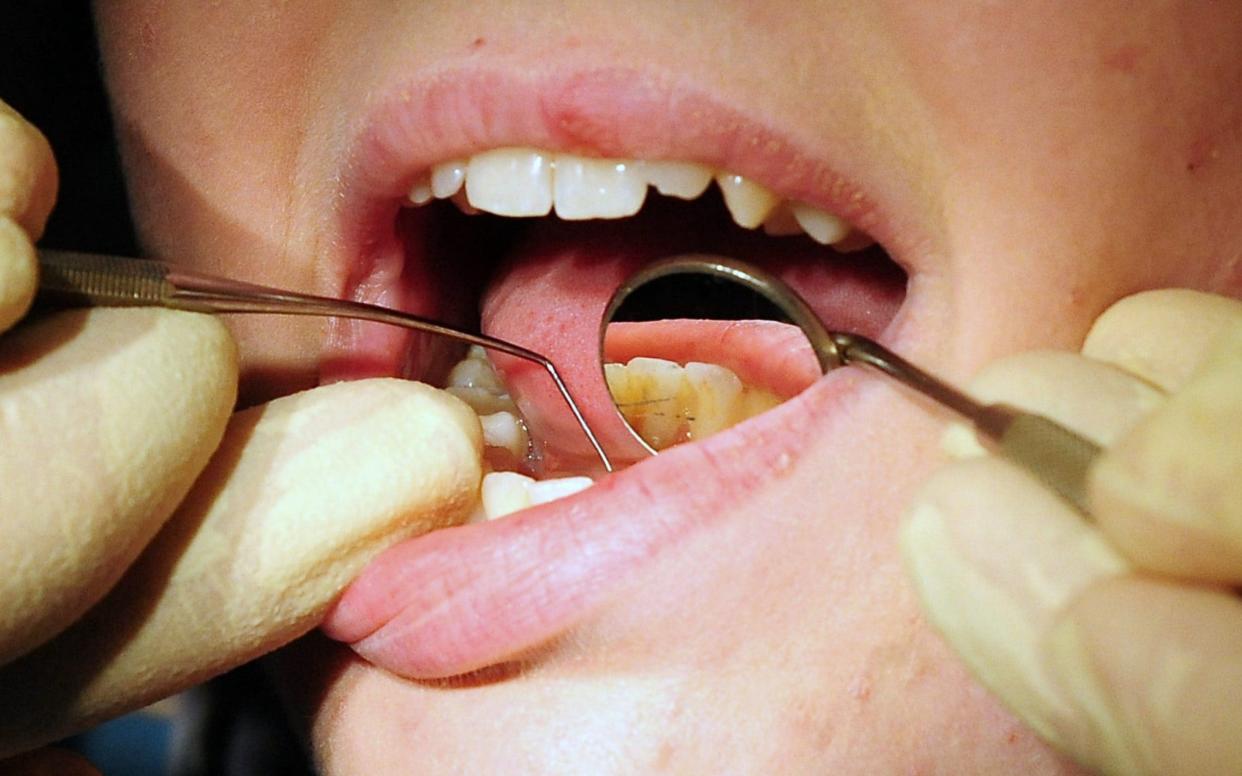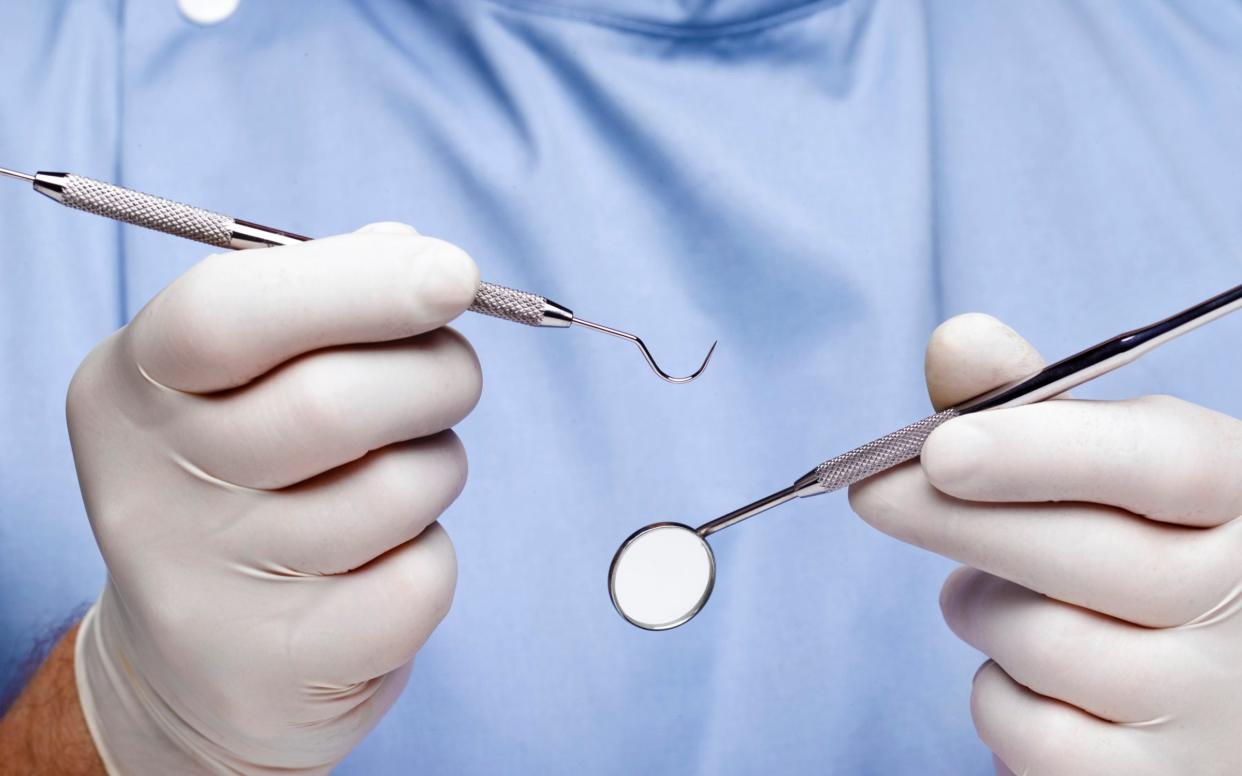Only one in 10 people has seen an NHS dentist over the last year in parts of the country

Just one in 10 adults has seen a NHS dentist locally over the last year in some parts of the country, official data shows.
The analysis of “dental deserts” shows the areas with the greatest struggles, with North Kesteven in Lincolnshire faring worst of all, followed by Melton in Leicestershire and Tewkesbury in Gloucestershire.
Parts of London, Surrey and Cambridgeshire also had some of the worst access to local NHS dentists, with the best access seen in parts of Lincolnshire and Derbyshire, according to the health service data.
The analysis by think tank Onward follows national figures showing that just four in 10 adults saw a dentist in the years 2022 to 2023.
Children are recommended to have a check up annually, but just half saw an NHS dentist.
The data reveals that in North Kesteven, Lincolnshire, just 11.9% people have seen a dentist in the past year. This was closely followed by Melton in Leicestershire, where the figure was 14.8% and Tewkesbury, Gloucestershire, where it was 14.9%.

In the City of London, 15.9% had seen an NHS dentist in the last year and it was one in five in Elmbridge, Surrey, and Fenland, Cambridgeshire.
The areas where the highest proportion of people had seen a local NHS dentist were Lincoln (78.5%), Chesterfield in Derbyshire (73%) and Redcar and Cleveland in North Yorkshire (65.4%).
The think tank is calling for fundamental reforms of dentistry, so that most check-ups would not be carried out by dentists.
Currently, dental therapists are allowed to perform check-ups and simple procedures such as fillings. However they cannot work independently or be put in charge of practices.
The think tank called on the Government to overhaul the system, to allow therapists to work independently, or run their own practices.
Such reforms would mean that the therapists would handle straightforward treatments - referring cases on to see a fully qualified dentist if more complex treatments like tooth extraction, straightening or realignment were required.
The think tank called for a doubling the number of therapists in training under such changes.
It said this would allow the NHS to train twice as many dental workers for the same cost, and to double the number of NHS appointments.
It takes three years to train a therapist, compared with five years for a dentist.
Tim Leunig, Onward’s chief economist, said: “We need to liberalise dentistry to help more people see a dentist and stay healthy. For routine check-ups and procedures, there’s no need to see a fully qualified dentist instead of a dental therapist or hygienist. It’s like insisting on having a doctor on a pharmacy’s front desk.
“The Government can create many more NHS appointments by letting dental therapists run practices and deliver the care they’re trained for, while keeping dentists focused on more complex treatment. It wouldn’t mean sacrificing the quality of care patients expect but enabling more people to receive the dental attention they deserve.
“At the same time, they can double the number of people training to deliver this dental care at no extra cost to the taxpayer.”
A report last month disclosed record numbers turning to dental insurance amid the deepening NHS dental crisis.
The figures show 3.8 million people were covered by some kind of dental plan in 2022 - up from 3.2 million in 2019.

The trends have seen the size of the market rise by almost one quarter, from £710 million to £868 million.
Analysts highlighted the recent record growth in the dental insurance market, with a 22 per cent rise in private dental subscription services, on the heels of a 23 per cent increase the year before.
The report said most private dentistry was still being paid for up front - with only around one quarter of all treatments covered by insurance plans.
It follows warnings from another think tank, which said universal NHS dentistry had now likely “gone for good” with “unpalatable choices” ahead.
The Nuffield Trust said the health service should admit it was failing to offer such a service, and instead strip back the offer, so everyone can get the most basic care.
Thea Stein, chief executive of the think tank, said: “NHS dentistry is at its most perilous point in its history and recent reforms will not be enough to reverse the swathes of dental deserts across the country.”
In March, the Department of Health and Social Care (DHSC) announced plans to amend regulations so dental hygienists and dental therapists can supply or administer some medicines.
A DHSC spokesman said: “We have already announced new powers for dental therapists and hygienists, and through the NHS Long Term Workforce Plan we are expanding dental undergraduate training places by 40 per cent a year by 2031 to 2032.
“Our Dental Recovery Plan will create up to 2.5 million more appointments this year alone, to ensure everyone who needs one can access an NHS dental appointment.”
“Our plan also includes offering dentists £20,000 golden hellos to work in under-served areas and rolling out mobile dental vans to rural areas where access is more difficult.”


